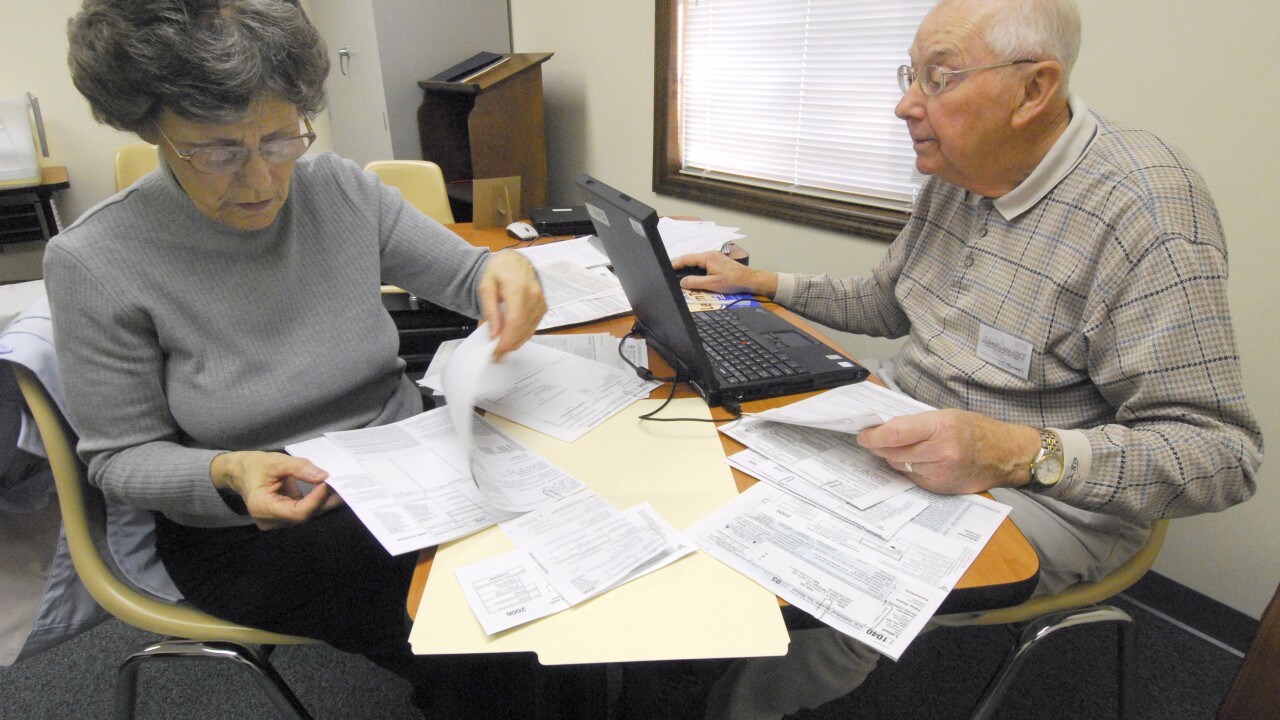Donald Trump himself was aware of allegedly abusive tax practices at his company, testimony at the criminal fraud trial of two Trump Organization business units suggested.
Trump Organization Controller Jeffrey McConney was asked by a prosecutor on Thursday whether longtime chief financial officer Allen Weisselberg had spoken with the former president about reducing Weisselberg's salary — and giving him perks instead — to lower his tax liability.
"That's what Allen told me, yes," McConney said.

Prosecutors with Manhattan District Attorney Alvin Bragg's office are trying to show that the alleged tax practices weren't a secret scheme hatched by McConney and Weisselberg, as the defense contends, but part of the firm's business practices and known all the way up to the top.
Unusual case
One striking aspect of the case is the loyalty that some prosecution witnesses may feel to the Trump Organization. Weisselberg agreed in August to testify truthfully for the prosecution in exchange for a sentence as short as 100 days in jail. But he remains on the firm's payroll and has worked for the family since 1973, starting with Trump's father, Fred Trump. As for McConney, the DA's office has unsuccessfully sought to have him declared a hostile witness, which would give it greater latitude in questioning him.
Trump isn't charged in the case. He has denied wrongdoing and called the prosecution a vendetta. Neither Trump spokesperson Taylor Budowich nor Trump Organization lawyer Alan Garten immediately responded to an email seeking comment on McConney's testimony.
Examining McConney on Thursday, Assistant DA Joshua Steinglass reviewed details of Weisselberg's annual salary and bonus for the jury in New York State Supreme Court in Manhattan.
McConney told the jurors that he had reduced Weisselberg's reported salary from $540,000 to $432,000 by backing out payments made by Trump Corp. — one of the two Trump companies on trial — for his car expenses, rent and tuition for his grandchildren from his W-2 form for 2015.
Other executives' perks
Steinglass asked McConney whether Weisselberg had ever told him he'd discussed the reductions with Trump. McConney said he didn't recall.
The prosecutor then asked him to review grand jury testimony he gave last year.
After reviewing it, McConney said Weisselberg had indeed told him on at least one occasion that he had discussed with Trump lowering his reported salary by the amounts paid toward the expenses.
Steinglass also asked McConney about other executives who benefited from perks that weren't included as taxable income. Chief Operating Officer Matthew Calamari got a rent-free Manhattan apartment and a company car, McConney told the court. Calamari's son lived rent-free at a Trump apartment on Central Park South, the controller testified.
CPS on the cheap
McConney testified that Weisselberg's son Barry got an apartment at a deeply discounted rate, but he couldn't remember the details.
Barry Weisselberg and his then-wife Jennifer lived in the Central Park South building and paid only utilities for seven years, delivering checks to Trump's assistant. When they moved out, the apartment was listed as a rental for $4,950 a month.
After Trump was sworn in as president in 2017, an outside tax lawyer for the Trump Organization, Sheri Dillon, wrote a memo recommending that the firm start disclosing all compensation, including perks and benefits, to the tax authorities.
In 2017 and 2018, the firm stopped paying Allen Weisselberg's rent, and while it continued to pay for his utilities, that amount was disclosed on his W-2 form as a noncash fringe benefit, McConney testified. In 2020, Weisselberg's salary — which had been frozen at $540,000 for almost a decade — jumped by $100,000.
As for the apartment occupied by Matthew Calamari, McConney helped get an estimate of the unit's fair market value, which was then included in Calamari's tax documents as noncash income, McConney told the jury.
The case is People v. Trump Organization, 01473-2021, New York State Supreme Court (Manhattan).





